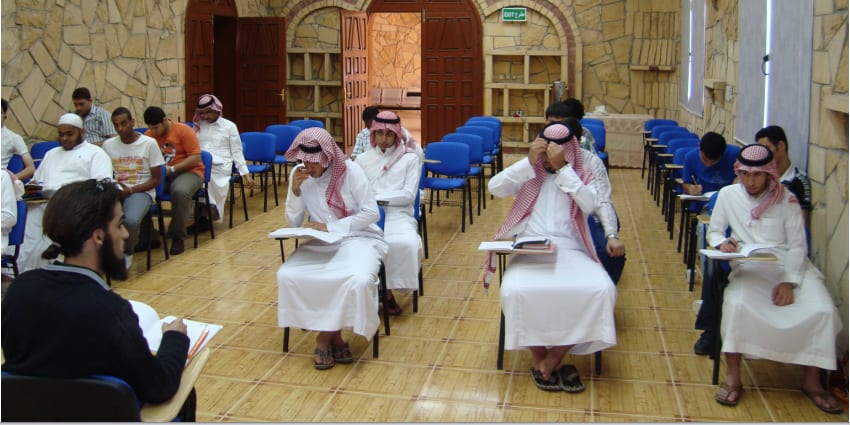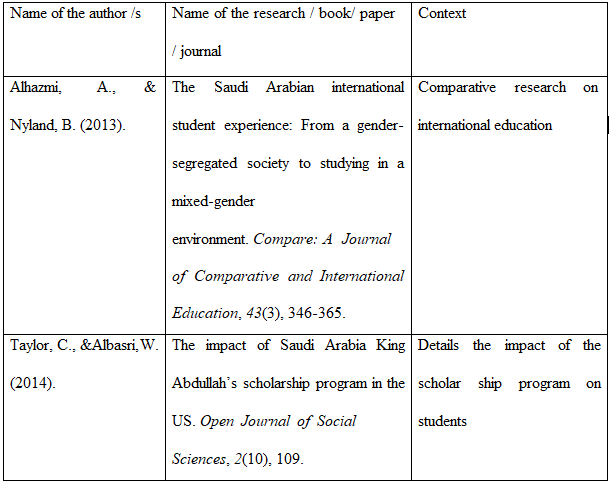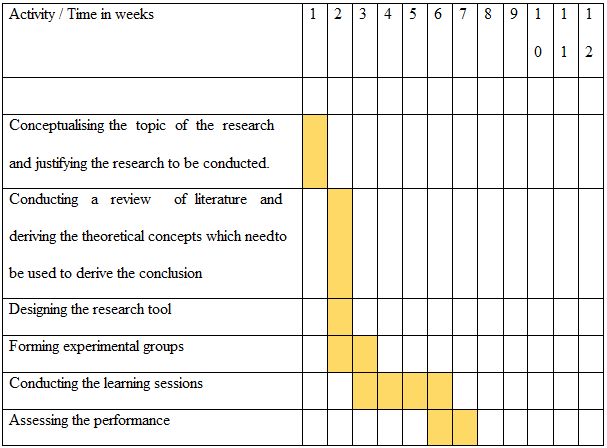
THE IMPACT OF PERSONAL LEARNING ENVIRONMENT (PLE) ON IMPROVING CRITICAL THINKING SKILLS FOR GRADUATE STUDENTS IN SAUDI ARABIA
Personal Learning Environments
Personal Learning Environments also referred to as PLEs are an essential component of learning and development. As defined by Arends, (2014), PLE is the assimilation of tools, people and services which contribute to the formation of individualised resources and approaches towards learning. It is mostly centred around the efforts which an individual makes towards the learning. As a part of the PLE, individuals may include learning resources which may be academic and non-academic in nature.
Netvibes is a Start Up page which can be personalised in order to suit the needs of the individual. Being easy and user friendly, this start up page helps in organising the pages into different tabs based on user defined modules which can include the content which has to be showcased on the webpage (Panagiotidis, 2014). Apart from collating webpages and blogs, Netvibes also presents the opportunity of assimilating the forecasts, news items, calendars and emails as per the content which has been specified.
Recent trends in learning and education have increased the need for developing customised Personalised Learning Environments based on which the learning of an individual can be enhanced and Netvibes is one of such tools which can be extensively used to create a personalised learning environment for individuals.
Keeping the above said in consideration, this paper aims to consider the contribution and impacts of using a personal learning environment (PLE) on improving critical thinking skills for graduate students in Saudi Arabia and proposes an academic research for the same.
- Challenge:
As identified by Flick, (2015), the coherence between the research aim and the proposed research delivers a high quality of research. Therefore, the primary research aim of this proposed research is as given below:
“To assess and evaluate the impact of personal learning environment (PLE) on improving critical thinking skills for graduate students in Saudi Arabia” - Research Objectives:
In order to attain the research, aim there are different research objectives which should be derived in order to attain the objectives and hence derive a conclusion. Therefore, based on the premise of the research which has been defined the following research objectives would be attained:
⦁ To assess and evaluate the importance of personal learning environment for learners⦁ To identify the impact of personal learning environment and critical thinking skills for graduate students
⦁ To identify the effectiveness of using Netvibes for developing critical thinking skills for graduate students in Saudi Arabia. -
Research Questions:
In order to attain the objectives which have been discussed above, the following research question (Primary) would be answered.
“What is the use of personal learning tools such as Netvibes as far as critical thinking skills of Graduate Students in Saudi Arabia is considered.
Solution
-
As identified by Personal learning environments are considered to be impactful as they help in providing customised learning environments to the students and hence increase the impact of learning. Midgley, (2014), argues that the effectiveness of Personal learning environments remains questionable as it is an internet based utility and hence is applicable only in areas where internet is available. However, in this context, Arends, (2014), states that by making the learning environments interesting, interactive and user friendly, the learning environments become more stimulating and motivational for the learners.
The debate of usefulness of PLE’s for enhancing the learning of the students has been increased due to the variance in the effectiveness of the same. Despite the fact that such learning as assessed by Ormrod, (2013), is not classroom based, the independence of the individual in seeking the learning increases the effectiveness of the learning. On the other hand, it is also seen independent learning promotes self-confidence and self-managed learning amongst children (Fraser, 2015). Based on the premise of thought that students around the globe can interact with each other using PLEs, Liebowitz and Frank, (2016), state that effectiveness of learning through interactive modes, does not only enhance the academic learning but also increases the manner in which the personal development of the learners can be enhanced.It is also seen that PLEs have their roots in networking and applications but the usability and importance of PLEs can be derived from the metacognitive processes and enhanced communication which forms a base of the learning environment. Another important factor which comes into play when PLEs are used is the customisable nature of the PLEs based on which each individual can customise the PLE as per their own specific needs. Usefulness of the PLEs comes into play when the people are able to evaluate and analyse the manner in which the information is obtained, stored and processed in order to derive the information which is required to imbibe the learning (Paul& Elder, 2013). Therefore,
At this stage the role of critical thinking induced due to PLEs is essential as far as the graduate students and PLEs are concerned. It is with the use of PLEs that graduate students can develop the ability to analyse and evaluate the information critically in order to obtain decision making skills further needed for career enhancement.
Different types of learners as expressed through the Kolb’s Learning types also reveals that such learning tools offer kinaesthetic learning which helps in increasing the learning imbibed by the students. While referring to the technical ease of use, it is seen that customisable ability of the PLEs further enhances the effectiveness of the resources used. In addition to the same, Price, et.al. (2015), also ratifies the use of PLEs by stating that such tools help in developing the decision-making skills of the students thereby promoting critical decision making amongst the students. Hence, aspects such as evaluation, critical analysis and increase in decision making lead to an overall personal and professional decision making amongst the students.
⦁ Nature of the study
Based on the subject and domain of the research which has been proposed, it is seen that this study would be largely exploratory in its nature and would aim to identify the impacts of PLEs such as Netvibes on the learning imbibed by graduate students. Therefore, an experimental approach of research would be used (Flick, 2015).
⦁ Research approach
Therefore, in concurrence with the research methodology as explained by Panneerselvam, (2014), it is seen that this research would be largely deductive in its approach and would focus on the benefits obtained by the students and no new theory would be proposed. With the lack of a new theory or hypothesis being explained, it is therefore recommended that this research be deductive in nature and not inductive and would conform with guidelines of experimental research
⦁ Research methodology
Based on the nature of the research, it is seen that elements such as opinions, satisfaction, learning and knowledge of the students would be gathered in order to perform an analysis which would lead to the conclusions for this study. Therefore, it is seen that as suggested by Gast and Ledford, (2014), a quantitative approach for the study would be suited to the needs of the research being proposed as mainly the abstract elements of data would be used and the numerical inferences drawn would be drawn.
⦁ Data assimilation
In order to assimilate the data required to attain the objectives, secondary and primary data would be used where in the review of literature would aim to present a theoretical base of the research. On the other hand, primary data, mainly qualitative in nature would be used to form the primary data pool based on which the conclusions would be derived.
⦁ Research Tool
Learning activities will be designed by the researcher and the study assessments will be made in the experimental groups. Furthermore, an environment to develop critical thinking skills for the graduate students would be created and Mix Strategies such as collaborative learning, peer review, and problem-based learning would be used in order to practice critical thinking skills. The assessments will be based on a marking rubric based on Facione System and a taxonomy of critical thinking would be used. In addition to this Quest-Online Discussion- Social Media through PLE area of research and sampling would also be implied.
This research would aim to assess the information assimilated randomly and the sample will be selected from the students of the higher studies at the Faculty of Education at King Abdul Aziz University and will be divided into a control group and experimental group.
Existing data Analysis
The present largest exporter of Oil is now transforming into a knowledge based economy and as per the figures detailed in 2016, 111,000 Saudi Students are studying in USA alone (Taylor&Albasri, 2014). A total of 10% of the fiscal budget has been allocated to higher education in Saudi Arabia since 2014. Furthermore, Ahmed, (2015 a), also observed that while the Saudi Universities do not fall in the first 200 global universities of repute, there are many Saudi Universities falling in the category of 10 best Arab Universities. It was through
the King Abdullah bin Aziz Scholarship Program that the enrolments of Saudi Students in foreign universities has been increasing since 2005 (Ahmed, 2015 b).De Bel-Air, (2014), further explores that in 2013, the Monarchy was housing 25 public Universities and a total of 1165,000 students had been enrolled in undergraduate programs. Therefore, with experience in PLEs and subsequent use of the same for enhancing the personal and professional learning of the students, it is seen that the international approach to learning may be hence enhanced.
Details of any previous work in the proposed field

⦁ How does this project further existing knowledge?
Through this research which is being proposed the exact relationship between Personalised learning environments suited to Saudi Graduate Students and critical decision-making skills would be formed.
Result
Based on the findings of this research, use of PLEs for enhancing the decision-making skills of the graduate students would be enhanced and further in concurrence with the national goals, the skills and abilities of Graduate Saudi Students would be enhanced as per international standards of education. Hence the topic of this research proposed is well justified.
A provisional timetable for the project


